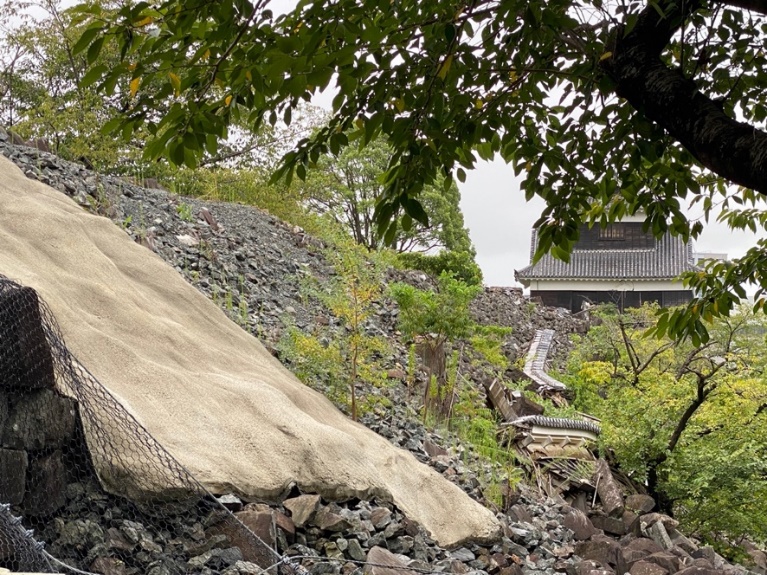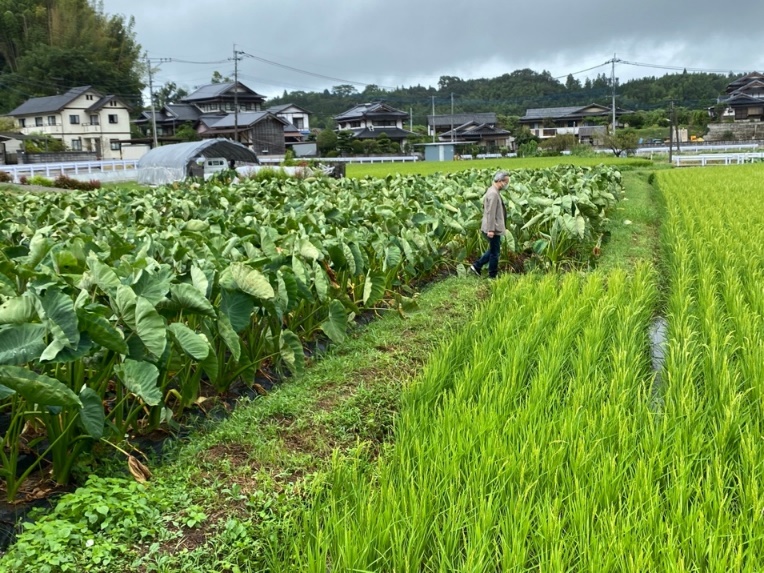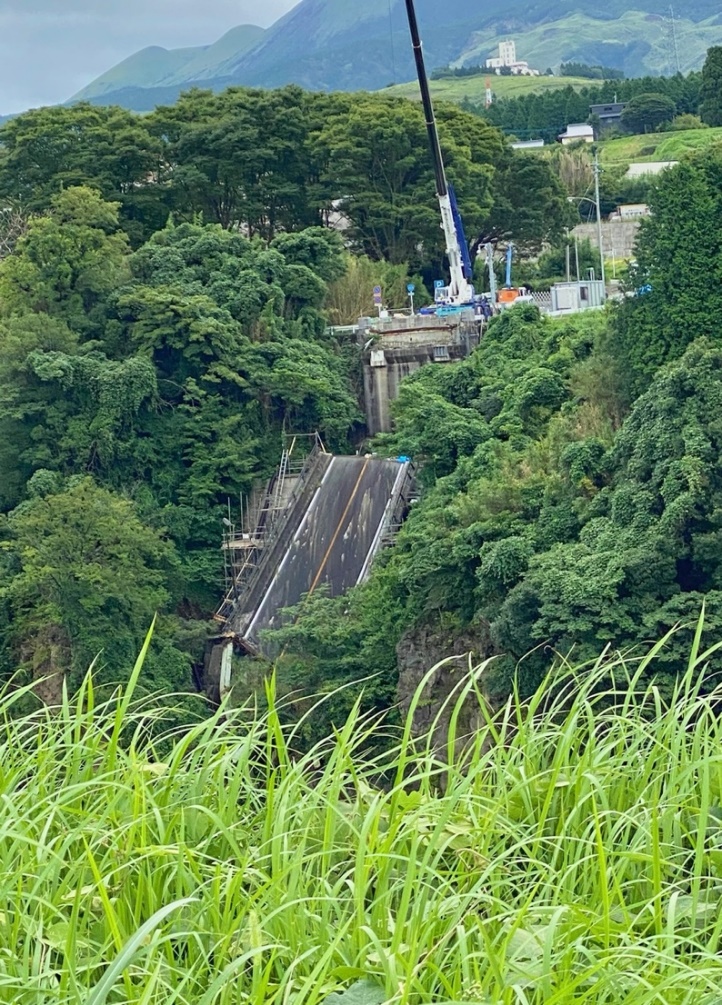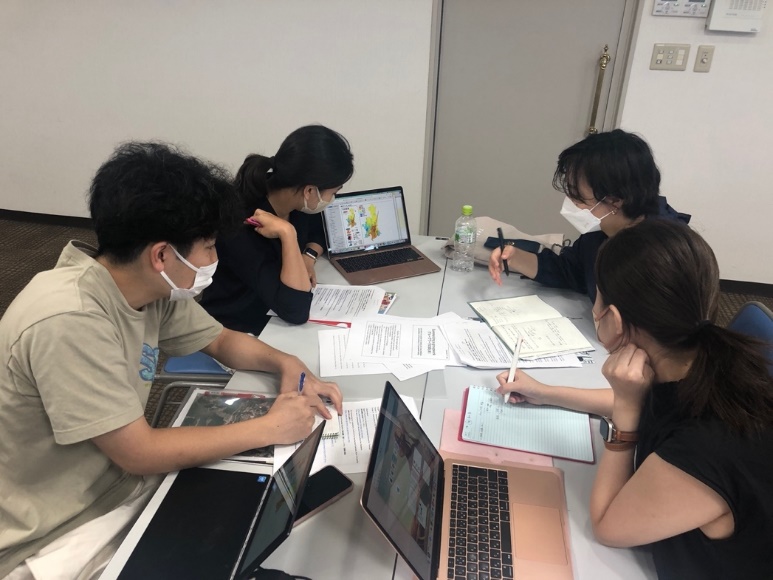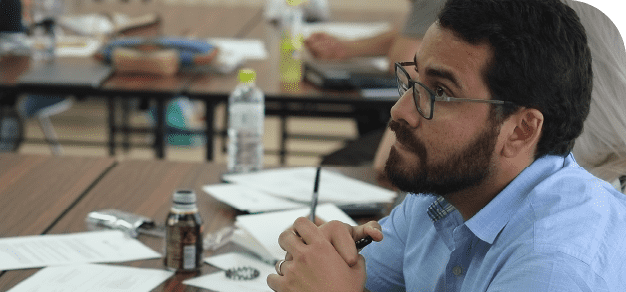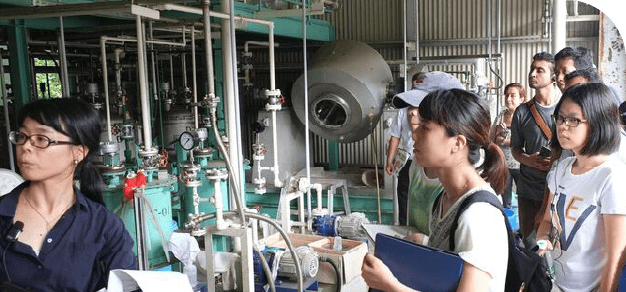GRM Students’ Reports
GRM Group Work Practice Ⅰ
Graduate School of Psychology MATSUOKA Risa
2022/11/07
I had a very satisfying experience for four days. Thank you for a wonderful experience. Then, I report on three things I learned during this field trip.
First, I had an opportunity to experience the reality of the devastating damage caused by Kumamoto earthquake and to think about what I can do to help. This was the first time for me to visit a disaster area. There were still painfully apparent such as AsoOhashi and the symbolic Kumamoto Castle had collapsed, and the Yokozure fault in the rice paddies. In addition, in the lecture given by Matsukawa-Sensei, I also learned about the reality of the disaster victims at the time of Kumamoto earthquake. Through this lecture, I thought that even ordinally people were struggling with living in the disaster areas, and especially vulnerable people must be in even greater difficulties. Therefore, I think that it was important to provide support for such people. In October, a disaster support training course for clinical psychologists will be held. I will participate in it. Since I experience the tragic situation, I would like to help people who attacked by disasters in near future.
Second, I learned the importance of improving literacy in disaster prevention and mitigation. That is what we learned in the lecture at the Kyoto University Volcano Center. In particular, we realized that it is important to know the risk of earthquakes and evacuation sites in our area etc. In our group presentation, we chose Kyoto because it is where we live. In my case, I thought it was necessary to consider the risks not only Kyoto, but also Tokyo where my parents live. This is because Tokyo is expected to suffer some damages from an inland earthquake or a Nankai trough earthquake that may occur in the near future. For my own family, I would like to inform them about the risk of disasters in my hometown and countermeasures. As one of the countermeasures, we have made a promise to access to the NTT Disaster Emergency Message Dial171 in case of a disaster hitting one of our family members. I will continue doing what we can do for disaster prevention and mitigation.
Third, I realized the importance of discussion from various viewpoints. During the group discussion, we were able to come up with ideas for countermeasures to future earthquakes from each member’s point of view. Our members were interested in fields such as technical engineering, social welfare, gender, psychology, and education. Therefore, we decided to consider specific measures from these perspectives. In this process, we developed a wide range of ideas, from countermeasures that individuals can take to those that groups and organizations can implement. For example, our members suggested that the way of managing their own risk against disasters, and that a booklet that describes items for women that may be necessary in disasters. In addition, learning experience for children walking through an education disaster prevention center was raised, such as we experienced at the prevention center in Fukuoka. If I had been working alone, I don’t think I would have considered measures from own perspectives. Because the team consisted of diverse members, we were able to come up with some great ideas.
